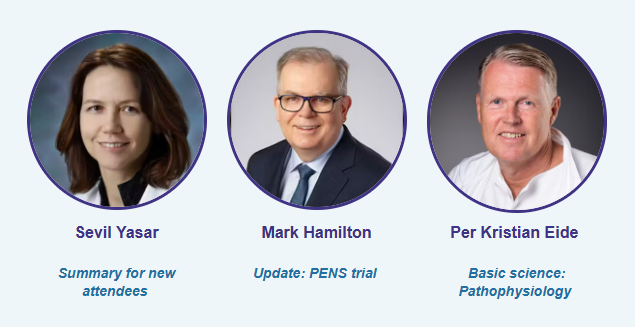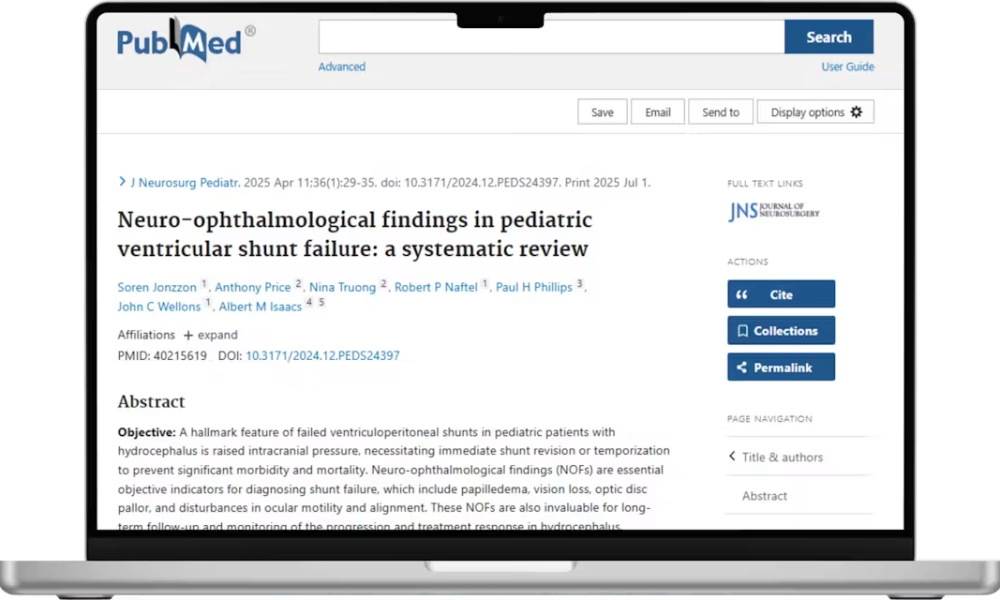
Abstract submission is now open for the Hydrocephalus 2026 World Congress, which will be held in São Paulo, Brazil, on 31 July – 3 August 2026!
We look forward to receiving original scientific research from hydrocephalus and CSF disorders related professionals, discussing developments, controversies, and arguments, new practices, and technologies in regard to Hydrocephalus treatment.
Young Investigators Awards
Continuing a long-standing tradition of the Hydrocephalus World Congress, the 2026 edition will once again feature the Young Investigators Awards as one of its key highlights.
Young researchers are invited to submit their work for consideration. Selected abstracts will be presented in three dedicated sessions during the Congress, and award recipients will receive prize money and/or complimentary registration for the next Hydrocephalus Annual Congress.
Submit your abstract by 16 March 2026 and become part of the
scientific programme of the Congress!
What does the Hydrocephalus Society
mean to our people?
One question – one word – infinite impact. We asked our Board Members what is the first word that comes in their mind when they think of the Hydrocephalus Society. See their responses and discover our amazing community!


You can now register for the 2025-2026 Global Webinar Series Part 3:
NPH/Hakim Syndrome: Life Long Learning
Webinar starts on
Saturday, 15 November 2025, 17.00 CET
We are very proud to introduce our speakers for Part 3, who will feature 3
top-notch lectures from the renowned experts:

Previous recordings🎥
Don’t miss out on the recording of the 2025-2026 Global Webinar Series Part 2: Focused webinar – What radiologists need to know about Hydrocephalus: For radiologists, by radiologists.
Previous webinar recordings can be found in the Member’s Corner

We are pleased to present this month’s interesting paper, “Neuro-ophthalmological findings in pediatric ventricular shunt failure: a systematic review” authored by:
Soren Jonzzon MD, Anthony Price MBA, Nina Truong BS, Robert P. Naftel MD, Paul H. Phillips MD, John C. Wellons III MD, MSPH, and Albert M. Isaacs MD, PhD.
Key take-aways:
• When a child’s ventriculoperitoneal shunt fails, one major danger is rising intracranial pressure.
• The review found that about 62% of children with surgically confirmed shunt failure showed neuro-ophthalmologic findings such as optic disc swelling (papilledema), vision loss, or eye movement/nerve palsies.
• After shunt revision surgery, most kids improved in disc swelling or nerve palsy (~80 – 90%), but unfortunately, vision loss did not reliably improve.
• The authors suggest that checking for eye/vision signs should be part of how we evaluate shunt function, not just brain scans and symptoms.

Partner Societies News:
Join the 19th National Conference on Hydrocephalus

Join the Hydrocephalus Association for the 19th National Conference on Hydrocephalus, HA CONNECT, from July 23-25, 2026, in Indianapolis, IN.
The conference will be attended by people living with hydrocephalus, caregivers and family members, medical professionals, scientists, device manufacturers, and related organizations and companies.
Visit hydrocephalusconference.org for more information.
Stay connected!
Follow us on Social!

Hydrocephalus World Congress: www.hydrocephalus-meeting.com
Hydrocephalus Society: www.ishcsf.com
Should you have any inquiries, please send us an email
74, Ethnikis Antistaseos str.
Gr 55133, Kalamaria, Thessaloniki, Greece
Icons by “Lordicon.com”
Click here to to unsubscribe

